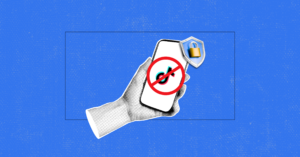The potential ban of TikTok in the United States has reignited global conversations about data privacy, security, and, most importantly, data sovereignty. As governments and individuals grapple with the implications of where and how their data is stored and accessed, the TikTok debate underscores a critical issue: control over data is about much more than just privacy—it’s about power.
Understanding Data Sovereignty
Data sovereignty refers to the concept that data is subject to the laws and governance structures of the country in which it is collected or stored. This means that if a platform operates in one country but stores data in another, the data may be subject to the latter’s legal framework. For instance, data stored on servers in China may fall under Chinese data laws, even if the users generating the data are located in the United States or Europe.
In an increasingly interconnected world, this cross-border complexity has raised red flags about who truly has access to and control over sensitive user information.
The TikTok Debate: A Case Study in Data Sovereignty
TikTok, owned by the Chinese company ByteDance, has been scrutinised for its potential ties to the Chinese government. Critics argue that the app’s data practices pose national security risks, as user data from millions of Americans might be accessible to Chinese authorities under China’s laws. In response, the U.S. government has pushed for measures such as local data storage, audits, or outright bans.
This debate highlights the challenges posed by global platforms in ensuring compliance with diverse national laws. Even if TikTok’s operations are transparent and localised, perceptions of data insecurity persist due to the underlying legal framework governing its parent company.
Why Data Sovereignty Matters to Businesses and Individuals
The TikTok case serves as a wake-up call for businesses and individuals alike. Here’s why:
- Legal Compliance: Companies that handle user data across borders must navigate a patchwork of regulations, from the EU’s General Data Protection Regulation (GDPR) to data localisation laws in India and China. Non-compliance can lead to hefty fines and reputational damage.
- Data Security Risks: Where data is stored and who can access it directly impacts its vulnerability. Data housed in regions with weaker cybersecurity measures or invasive government policies is at greater risk of breaches or misuse.
- Consumer Trust: Users are becoming increasingly aware of how and where their data is stored. Platforms perceived as failing to prioritise user privacy may lose consumer trust, which can be challenging to regain.
- Geopolitical Tensions: Governments are beginning to view data as a strategic asset. This has led to increased scrutiny of foreign-owned platforms, particularly those operating in rival nations. Businesses that fail to consider these dynamics risk being caught in the crossfire.
What Businesses and Individuals Can Do
To navigate the complexities of data sovereignty, proactive measures are essential:
- For Businesses:
- Assess your data storage practices and ensure compliance with the legal frameworks of all countries in which you operate.
- Invest in localised infrastructure, such as regional data centres, to meet data sovereignty requirements.
- Prioritise transparency with users by clearly communicating how and where their data is stored.
- For Individuals:
- Review the privacy policies of apps and platforms you use, focusing on where data is stored and who has access.
- Use tools like encrypted messaging apps to secure sensitive communications.
- Stay informed about privacy laws and practices in your region to make informed choices about the platforms you trust.
The TikTok debate underscores a broader truth: data sovereignty is not just a regulatory issue; it’s a cornerstone of digital trust in an increasingly globalised world. As the digital landscape evolves, businesses and individuals must prioritise understanding and addressing the implications of data sovereignty. By doing so, they can better safeguard their information and build a foundation of trust in a complex and interconnected digital age.



